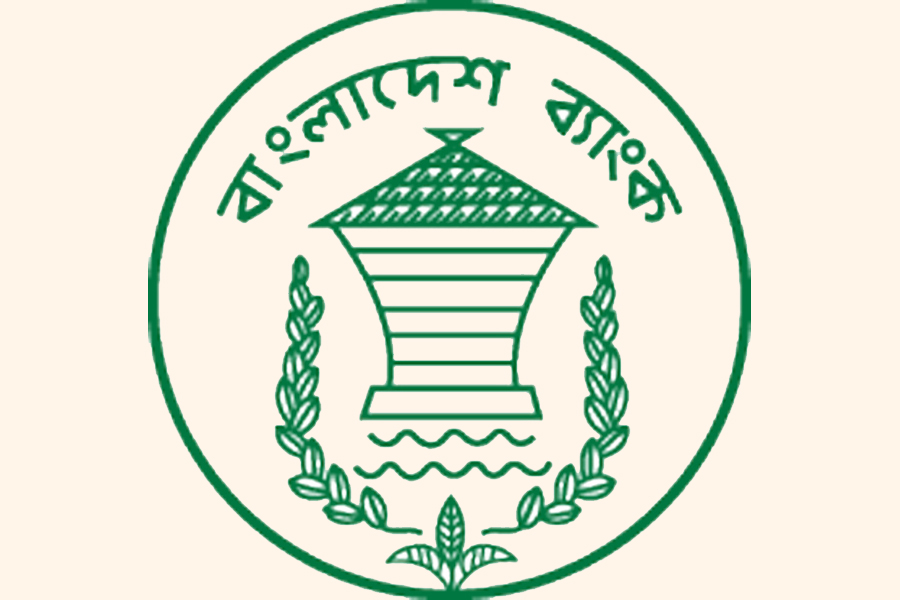
Published :
Updated :

Bangladesh Bank is armed with adequate bucks to intervene if the local currency depreciates deeply following the introduction of market-driven foreign-exchange regime, one of major financial-sector reform undertakings.
Deputy Governor of the central bank Dr Habibur Rahman explained Thursday the switch from managed-to-monitored dollar-taka exchange rate, launched on the day in fulfillment of the last IMF condition binding credit release.
"Bangladesh Bank is watchful. If depreciation exceeds the desired level, we can intervene -- we have the mechanism and we have the funds," he said while speaking at the launch of Monthly Macroeconomic Insights by the Policy Research Institute (PRI) at the PRI office in Dhaka.
Dr Rahman expressed the confidence that the new exchange regime would not result in excessive depreciation.
"So far, we haven't felt any pressure from depreciation. We will monitor the situation for another two to three days to assess the full impact of the new mechanism," he told the function.
"The new mechanism is designed to showcase the country's strengths and send a positive signal to the external world," he said.
He notes that while the exchange rate is not yet fully floating, it is now more flexible than ever before.
The central bank does not plan to intervene in the day-to-day management of the foreign- exchange market, he clarifies.
The deputy governor feels that the newly introduced system reflects the country's ability and intent to pursue reforms.
Given the current level of foreign-exchange reserves, improvements in the current account, and the overall balance of payments, he believes Bangladesh is well-positioned to manage any potential overshooting of the exchange rate.
He also highlighted signs of recovery in the ready-made garment (RMG) sector after a period of sluggish growth. "The sector is rebounding and has the resilience to absorb potential shocks," he told the meet of economic-policy researchers.
The Policy Research Institute of Bangladesh launched the inaugural edition of its Monthly Macroeconomic Insights (MMI), a new data-driven initiative by its Centre for Macroeconomic Analysis (CMEA), supported by the Australian Department of Foreign Affairs and Trade (DFAT).
Speaking as chief guest, Special Assistant to the Chief Adviser on the Ministry of Finance, Dr Anisuzzaman Chowdhury said global economic history shows that nations achieve sustained development when policy coherence is paired with strong social capital. "Bangladesh must prioritize both."
He said the government is committed to aligning its policies around clear objectives.
"While challenges are inevitable, LDC graduation offers a valuable opportunity to reassess our trajectory, learn from past missteps, and move forward with renewed strategic clarity and resolve," Mr Chowdhury told his audience.
Deputy Head of Mission of the Australian High Commission Clinton Pobke commended the initiative.
"We are proud to support efforts that enhance evidence-based policy dialogue and contribute to more effective, timely policymaking. I commend PRI for bringing together macroeconomic data, rigorous analysis, and impactful presentation in a way that can meaningfully inform and influence policy decisions."
Upon reviewing the economic-growth scenarios, Dr Zaidi Sattar pointed out that in the current year, macroeconomic stability has been restored, and the economy is poised to return to a higher-growth trajectory.
"Our export potential is hobbled by a highly protective tariff regime that creates a persistent anti-export bias in policy incentives."
Dr Ashikur Rahman added, "While external balances are improving, persistent fiscal weaknesses are making the ongoing economic recovery very fragile. However, the dissolution of the NBR and creation of separate Revenue Policy Division and Revenue Management Division is a step forward, alongside the new bank-resolution ordinance that strengthens BB's authority to manage the weakened financial sector."
The March MMI edition shows GDP growth having rebounded to 4.48 per cent in Q2 FY25, up from 1.96 per cent in Q1, driven largely by industrial output. However, weak PMI, subdued private credit growth, and falling FDI suggest the recovery remains fragile. The World Bank has revised its FY25 GDP forecast to 3.3 per cent, citing political uncertainty and external risks.
Headline inflation eased to 9.35 per cent in March from a peak of 11.7 per cent in July 2024, but remains elevated. The Bangladesh Bank has maintained the policy rate at 10 per cent for six consecutive months and is expected to hold this stance through FY25.
The external sector showed improvement with the trade deficit narrowing to $13.7 billion and a current-account deficit of $1.27 billion. Export earnings grew 11.44 per cent year on year in March, reaching $4.25 billion, while remittance inflows rose 27.6 per cent in the first nine months of FY25, hitting a record $3.3 billion in March.
bdsmile@gmail.com


 For all latest news, follow The Financial Express Google News channel.
For all latest news, follow The Financial Express Google News channel.